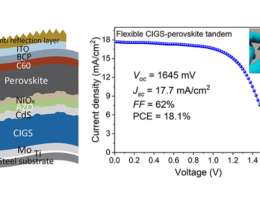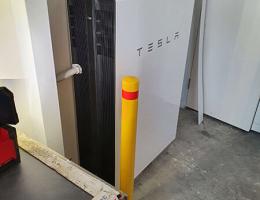
Firstly what do we mean by end use services? Well that would be things like transport (moving you from point A to point B), heating (the vast majority of cooling is already electrified) and to a much lesser extent things like electrifying power tools (lawn mowers, leaf blowers etc) that might currently be petrol powered. Electrification tends to mean supplying electricity, electrification of end-use services is then substituting electric appliances for appliances currently powered by petrol/natural gas.
The figure below shows that Heating and Cooling is currently 7.1% electrified (with cooling near 100%) and Transport is 1.1% electrified; there is little data on the electrification of other end-use services but they are a tiny fraction of total final energy consumption and can largely be ignored. Note: heating and cooling is 51% of final energy consumption and nearly twice the proportion of energy used by the transport at 32% (the remaining 17% includes things that are already electrified like fridges, computers etc).
Renewable energy in total final energy consumption, by sector 2016
Source: REN21. Renewables 2019, Global status report
But how fast is this growing?
The bad news is that the increase in electrification of heating and cooling (i.e. the most important sector) is matched by the increase in the demand for these services, so there is no net growth in electrification of heating at the moment. The reason for this is not clear but it probably has something to do with the belief that gas is the better option for heating services, something that is no longer true in many applications, especially home or office heating which can be done better and cheaper via heat pumps.
However there is some good news in the transport sector, electrification is experiencing rapid growth, between 2017 and 2018 there was a 63% increase in the number of electric vehicles on the road from about 3 million to about 5 million vehicles. Electric vehicles currently represent about 2% of new vehicle sales.
Source: IEA Global EV outlook 2019
According to the International Energy Agency (IEA), by 2030 electric vehicle market share could reach 30 % of new vehicle sales (and 10% of total vehicles) for all vehicle categories except (two wheelers) if policies were implemented to maintain this explosive growth. Note: Electric bicycles are not counted in these figures as there are well over 100 million of them in the world.
Electric vehicle stock to 2030 fast growth scenario
Source: IEA Global EV outlook 2019
At current growth rates all transport would be electrified within 20 years however it is not clear what the long term growth rate will be. The transition might take 20, 30 or 40 years but what is clear is the electrification of transport is proceeding rapidly and the electrification of heating is not.
Why is heating not being electrified as rapidly as transport?
There is no real explanation for why heat pumps are not taking off like electric cars, electrifying heating is actually more important to global emissions reduction than electrifying transport and heat pump heating is cheaper than its main rival in natural gas. The only conceivable reason electric heating is not growing rapidly is that people don't know about modern heat pumps, how cheap they are to run and what they are capable of.
Could it really be that electric heating use and more specifically heat pumps are not growing as rapidly as the electrification of transport because it hasn't had the equivalent of the Elon Musk treatment? That is, they are not seen as sexy like electric cars, perhaps heat pumps need one of Musk's famous launches to boost their profile (maybe the next drone ship or rocket could be called 'I love heat pumps').
Whatever the reason for the sluggish growth in heat pump use, the wider public needs to discover the immense potential of heat pumps to save energy and cut emissions; as previously shown they can be more significant in the fight to cut emissions than vehicle electrification by nearly a factor of two. Heat pumps are a critical element in the fight to cut emissions, not to mention the fight against rising energy costs, it is time the world learned to love them as much as the next electric supercar from Tesla.







